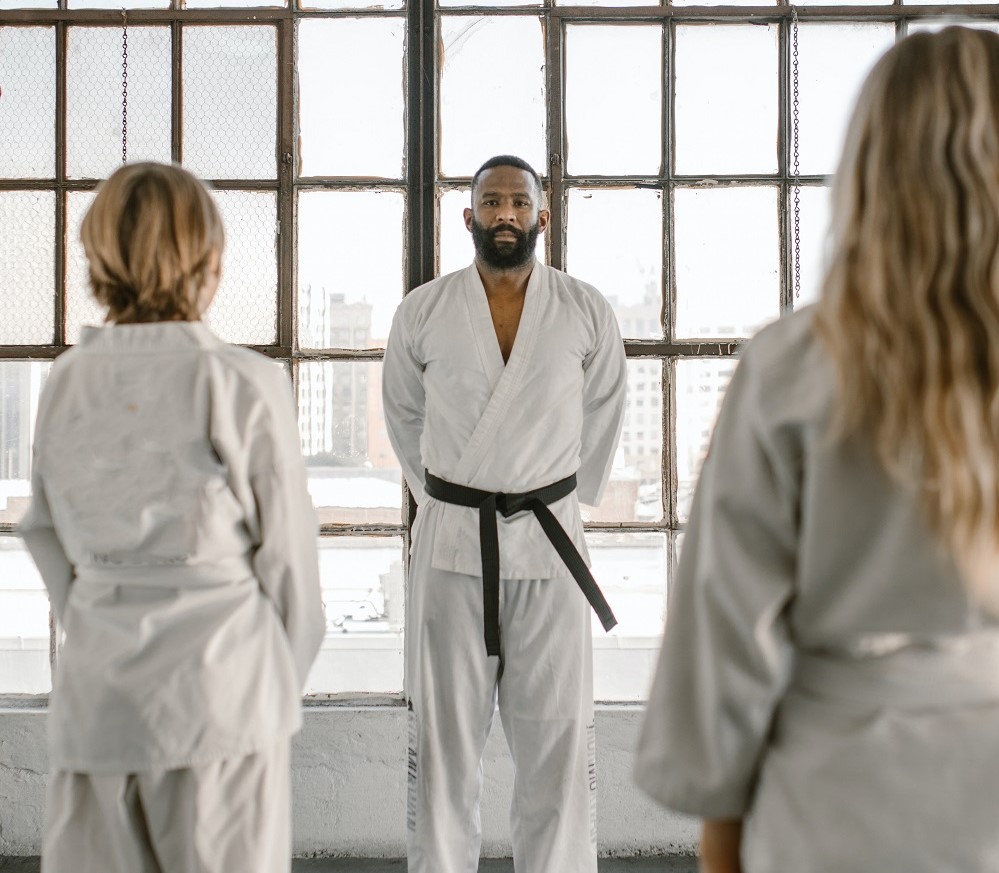Blog
Feb 9, 2022
When you think sport, your mind probably goes to all the physical benefits that comes with the exercise such as gaining stronger muscles, joints, and bones. What is often overlooked is the variety of mental benefits you receive from staying active and partaking in a physical sport. For example, taking part in physical activities can:
- Improve your mood
- Improve your concentration
- Reduce stress and depression
- Improve self confidence
Those who partake in a sport also develop leadership qualities as you are more likely to develop the team-mindset which can be also applied to work. Still don’t believe us? We spoke to one of our apprentices Martin Pearson at Airbase Agency who is a prime example of the effect sport has had on his mental and physical health during COVID-19.
What sport do you take part in (what does it involve) and how long have you been doing it?
The sport I take part in is called Brazilian Jiu-Jitsu, which is a grappling-based combat sport that does an excellent job of marrying traditional Japanese Jiu Jitsu with elements of freestyle wrestling, judo, and other niche styles of grappling like Sambo and folkstyle wrestling. I’ve been involved with my club for over a year, probably leaning towards a year and a half at this point. In terms of grading, I have 2 stripes on my white belt, in BJJ you collect 4 stripes per belt and then go for the next belt up, so for me that will be a blue belt.
Were you able to take part in this sport during COVID 19?
With the close contact involved in a sport like this we couldn’t train through any of the lockdown periods, like most non-contact sports to be fair. We were allowed to return quite quickly once restrictions were lifted but in a ‘minimal contact’ capacity as we called it, using grappling dummies instead of live training partners to practice drills. It’s getting to the point now where we’re starting to worry about another lockdown killing our momentum but it’s not something in our control so no point in losing sleep over it!
If not, how did this affect your mental and physical health?
Over the first lockdown when we weren’t allowed to train at all I did feel quite unmotivated carrying out the most menial and repetitive tasks. Personally, I’ve always had sport as a constant in my life so like most other people having that rug pulled was a big adjustment. Getting back in there after various lockdowns and periods off training, you do feel a massive relief and a bit of a weight lifted, having that outlet back and the comradery we have with each other in the gym.
Has your sport increased your confidence? If so, how?
Yes, sport has been a big factor in the development of my self-confidence over the years. When I was younger and in school, I struggled with my weight which didn’t help the self-confidence aspect, but as I got fitter and more active, I felt more comfortable in myself, and the physical changes came over time. I stopped fixating on the fact I was unhappy with myself and took action to improve and I think this mindset could be very beneficial for others struggling with similar issues. There’s no shame whatsoever in asking for help, I myself have many times but to a point only you can take the proper actions to try and improve your mental and physical wellbeing.
To conclude
This is an excellent example of how a sport has had a huge positive impact on someone’s health and has possibly changed their life for the better. Not only has this clearly boosted Martin’s confidence, it has enabled him to live a healthier, more active lifestyle while also learning a potentially valuable skill. Want to explore more on mental health and find out how to create your own happiness? Read this blog by our Peoples Partner Frances Williams who explores key tips on being content in your mind and body.
Follow Martin on LinkedIn



